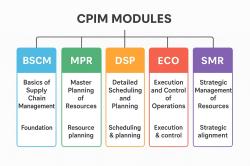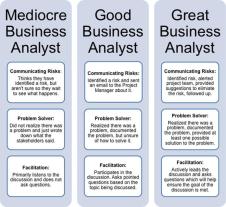What role should the customs broker play?
A customs broker plays a crucial role in facilitating the import and export of goods across international borders by assisting individuals and businesses in complying with customs and trade regulations. Here are the key roles and responsibilities of a customs broker:
Customs Clearance: The primary responsibility of a customs broker is to facilitate the customs clearance process. They help importers and exporters ensure that their goods meet all legal requirements for entry into or exit from a country. This includes completing and submitting the necessary customs documentation and declarations.
Documentation Preparation: Customs brokers assist clients in preparing and submitting the required documentation, such as invoices, bills of lading, packing lists, and certificates of origin. They ensure that all documentation is accurate, complete, and compliant with customs regulations.
Tariff Classification: Customs brokers are experts in tariff classification, which involves determining the appropriate classification code for imported or exported goods. This code is used to calculate customs duties and taxes. Accurate classification is essential to avoid underpaying or overpaying duties.
Valuation Assistance: Customs brokers help clients accurately value their goods for customs purposes. This involves determining the customs value of the goods, which can include the cost of the goods, shipping charges, insurance, and other applicable costs.
Duty and Tax Calculation: Customs brokers calculate the customs duties, taxes, and fees that are owed on imported goods. They ensure that clients pay the correct amount based on the goods' classification and value.
Customs Compliance: Customs brokers help clients comply with a wide range of customs regulations, including import restrictions, quotas, and trade agreements. They also assist with compliance related to customs security programs, such as the Customs-Trade Partnership Against Terrorism (C-TPAT) in the United States.
Communication with Customs Authorities: Customs brokers act as intermediaries between their clients and customs authorities. They communicate with customs officials to resolve any issues or inquiries related to import or export shipments.
Record Keeping: Customs brokers maintain records of all transactions and documentation related to their clients' import and export activities. This is important for audit purposes and to demonstrate compliance with customs regulations.
Expert Advice: Customs brokers provide expert advice on trade regulations, trade agreements, and customs procedures. They help clients navigate the complexities of international trade and keep them informed about changes in customs rules and regulations.
Efficiency and Cost Savings: Customs brokers help streamline the import-export process, reducing the risk of delays and costly errors. They can help clients minimize duties and taxes legally and ensure that goods move through customs smoothly.
Dispute Resolution: In the event of disputes with customs authorities or issues with shipments, customs brokers can assist in resolving these matters through negotiation and appeals processes.
Logistics Coordination: Some customs brokers offer logistics services, helping clients arrange transportation, warehousing, and distribution of goods to and from ports and customs facilities.
It's important to note that the specific role and responsibilities of a customs broker can vary from one country to another due to differences in customs procedures and regulations. When engaging a customs broker's services, it's crucial to choose an experienced and reputable professional or firm to ensure compliance with all relevant laws and regulations and to facilitate smooth international trade operations.
The Crucial Role of a Customs Broker in International Trade
Customs brokers play a crucial role in international trade by helping businesses to import and export goods. They are licensed professionals who specialize in navigating the complex customs regulations and procedures of different countries.
Customs brokers can assist businesses with a wide range of tasks, including:
- Classifying goods and determining the applicable duties and taxes
- Preparing and submitting customs documentation
- Arranging for the inspection and release of goods
- Handling disputes with customs authorities
Customs Broker Responsibilities: Navigating the Import and Export Process
The specific responsibilities of a customs broker will vary depending on the country and the type of goods being imported or exported. However, some of the most common responsibilities include:
- Classifying goods: Customs brokers must be able to correctly classify goods in order to determine the applicable duties and taxes. This can be a complex task, as there are thousands of different commodity classifications.
- Preparing and submitting customs documentation: Customs brokers must prepare and submit a variety of customs documents, such as commercial invoices, packing lists, and certificates of origin. These documents must be accurate and complete in order to avoid delays and penalties.
- Arranging for the inspection and release of goods: Customs brokers may need to arrange for the inspection of goods by customs authorities. They may also need to arrange for the release of goods from customs custody.
- Handling disputes with customs authorities: Customs brokers may need to represent businesses in disputes with customs authorities. This may include negotiating settlements or filing appeals.
Maximizing Efficiency: How Customs Brokers Facilitate Global Trade
Customs brokers can help businesses to maximize efficiency and reduce costs in a number of ways. For example, customs brokers can help businesses to:
- Avoid delays: Customs brokers can help businesses to avoid delays at the border by ensuring that all customs documentation is accurate and complete.
- Minimize duty payments: Customs brokers can help businesses to minimize duty payments by identifying and claiming all applicable duty exemptions and preferences.
- Reduce compliance costs: Customs brokers can help businesses to reduce compliance costs by ensuring that they are in compliance with all applicable customs regulations.
Overall, customs brokers play a vital role in facilitating global trade. By helping businesses to navigate the complex customs regulations and procedures of different countries, customs brokers help to ensure that goods can flow smoothly across borders.













